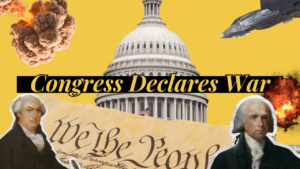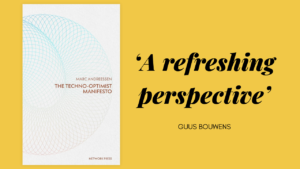We Americans love our booze—and this was no different at the turn of the century. The Progressive movement, seeking to use the State as a mechanism of improvement to the lives of its citizens, would see alcohol as a moral ill that was harming the moral flourishing of its citizens. Inspired by this desire for moral reform, the United States would adopt a constitutional amendment combined with an enabling law called the “Volstead Act” which barred the manufacture, sale, transportation, and importation of alcohol, starting 1920.
Although framed as a moral crusade, the prohibition of alcohol was a significant infringement on civil liberties that did not stop with alcohol, and would eventually expand government overreach. Despite expungement in 1933, the consequences of the experiment paved the way for further taxation, the growth of federal agencies, and even infringement on Second Amendment rights. The tale of Prohibition is more than just one of regulating alcohol; it illustrates how civil liberties are connected, and if one is threatened, other civil liberties can easily soon follow.
The first liberty to fall was the ban on alcohol, which gave the era its name. Alcoholism was certainly a problem in American society. Its abuse led to the violation of rights in a multitude of contexts and numerous issues impacting both the productivity of workers and family relationships. Believing that banning the item would stop its vile tentacles from corrupting American society further, Prohibition was a sanctimonious campaign among both Democrats and Republicans. But in banning alcohol, America was doing more than just attempting to ban a substance; it was deciding to outlaw an individual’s personal choice.
As with any law, there needed to be enforcement to achieve Prohibition’s aims. In spite of the new law, and the seemingly endless political support, there was a serious problem: when Americans were forced to show their true preferences, they wanted to continue their engagement with the personal choice to consume alcohol. While Prohibition was in effect, many Americans still sought alcohol through illegal speakeasies, bootlegging, or criminal organizations. This violation of the law led the federal government to increase enforcement, specifically through the establishment of the Bureau of Prohibition with its “Dry Agents.” Thousands of agents operated across the United States, arresting violators of the law, raiding secret nightclubs, and dumping contraband into city sewers and gutters. To deter American citizens from violating Prohibition, the Federal Government imposed heavy penalties, with the Increased Penalties Act, first-time offenders faced up to five years in prison and fines of up to $10,000, roughly $185,000 in 2025.
But it was in this enforcement that the liberties began to fall, as Prohibition created a climate in which the government felt justified in intruding into homes, businesses, and the behaviors of its citizens.
Enforcement’s first victim would be the rights to privacy. To enforce these nationwide behavior laws, the agency committed itself to surveillance operations on suspected violators. One of the most notable cases was Olmstead v. United States, in which Dry Agents wiretapped a suspected bootlegger’s office without judicial approval, leading to his arrest. The Supreme Court ruled in 1928 that this did not violate the Fourth or Fifth Amendments. While the Supreme Court eventually overruled Olmstead v. United States in 1967, surveillance remained common in the U.S., with federal surveillance having a prominent history—most notably the illegal acts associated with COINTELPRO during the 1960s and 70s and the Patriot Act after 2001.
Thereafter, due to the gang violence from bootlegging, impounded by the incompetence of the State to actually enforce spurred government efforts to restrict firearms despite constitutional protections. This climate led to the National Firearms Act (NFA) of 1934, which targeted weapons linked to organized crime—such as short-barreled rifles, shotguns, and other concealable arms—while exempting standard pistols and revolvers. The NFA imposed severe penalties, including prison time and heavy fines, for possession of unregistered or modified weapons. Intended to punish crime families, it ultimately had little measurable effect on crime reduction. Instead, it established lasting restrictions on Second Amendment rights, with harsh punishments for technical violations that many argue continue to unjustly abuse law-abiding gun owners today. This would be a second civil liberty to be lost in the name of enforcing prohibition.
Prohibition is often viewed only as the government infringing upon the freedom to consume alcohol; however, it is much more than that. Prohibition is a prominent example of how civil liberties do not erode in isolation. If one liberty is threatened, other liberties could be threatened next. As alcohol was first targeted by government overreach, our privacy, our property, and our firearms were targeted soon after because of Prohibition’s consequences. If we are to keep our liberty, we must remain vigilant about our freedom in all the forms that it exists.






